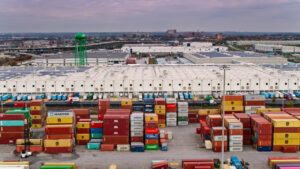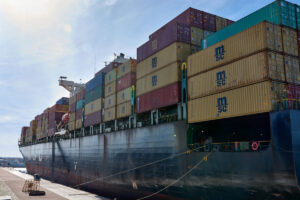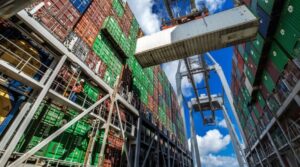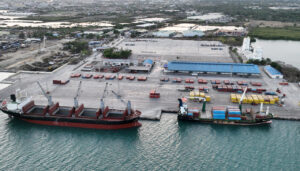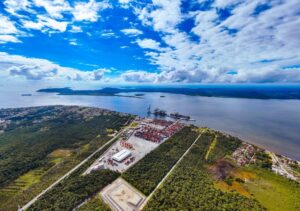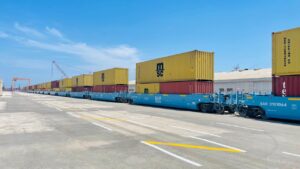The International Maritime Organization (IMO) and digital solutions provider PortXchange have emphasised both the potential and problems that the shipping sector faces as it moves towards decarbonisation.
While the commitments made are a positive step, they fall short of the urgent action needed to effectively mitigate climate change.
Many industry stakeholders are calling for stronger, faster action to exceed the IMO’s baseline commitments, with ports and technological innovation emerging as key drivers in achieving this.
The IMO’s revised greenhouse gas (GHG) strategy, agreed upon at MEPC80, has set the goal for net-zero emissions by around 2050, with intermediate targets for 2030 and 2040.
However, some stakeholders question the organisation’s pace and the efficacy of its proposed measures.
Countries such as China, Brazil, and Argentina have resisted more ambitious actions like a carbon levy, contributing to a perceived lag in the IMO’s responsiveness to the urgency of the climate crisis.
Consequently, industry players are adopting more aggressive emission reduction goals independently.
In this climate, ports are being recognised as crucial change agents, providing the necessary bridge between policy and practice.
PortXchange has emerged as a key partner for ports seeking to accelerate their emission reduction strategies.
Its innovative software solution, EmissionInsider, has been effectively utilised in the Port of Rotterdam, Europe’s largest seaport.
This tool simplifies and automates transport-related emission data collection and establishes a customised baseline emissions inventory for each port.
READ: PortXchange awarded B Corp Certification for social and environmental efforts
Through EmissionInsider, Rotterdam has successfully established a comprehensive emissions profile and made significant strides towards achieving its decarbonisation targets.
Regardless of IMO rulings, this practical example of technology enabling pollution reduction provides a persuasive pattern for other ports globally.
PortXchange’s EmissionInsider reportedly provides data to port authorities to help them make strategic decisions on targeted decarbonisation plans.
Adopting procedures and incentives that promote sustainable shipping practices, such as speed optimisation, which may dramatically cut emissions, is one example of such a move.
The maritime industry’s decarbonisation strategy is becoming increasingly reliant on digitalisation.
As PortXchange has proved, collaborative, technology-driven solutions may assist the sector in exceeding the IMO’s emission reduction targets.
The rapid uptake and implementation of such solutions will be crucial in driving the industry’s transition towards a sustainable future.
While the post-MEPC80 landscape brings its share of challenges, it also opens doors for greater collaboration and innovation, but only if they recognise the parts that must play in meeting their targets.
By harnessing the power of technology and committing to robust decarbonisation strategies, the shipping industry can effectively navigate these uncharted waters.


